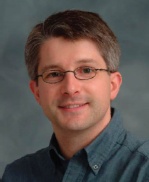Pre-test: The Pharmacology of Low Back Pain
| Questions | 3 |
|---|---|
| Attempts allowed | Unlimited |
| Available | Always |
| Backwards navigation | Forbidden |
| Questions | 3 |
|---|---|
| Attempts allowed | Unlimited |
| Available | Always |
| Backwards navigation | Forbidden |
D’Arcy Little, MD, CCFP, FRCPC
Medical Director, JCCC and HealthPlexus.NET

Members of the College of Family Physicians of Canada may claim one non-certified credit per hour for this non-certified educational program.
Mainpro+® Overview
Members of the College of Family Physicians of Canada may claim MAINPRO-M2 Credits for this unaccredited educational program.
| Questions | 3 |
|---|---|
| Attempts allowed | Unlimited |
| Available | Always |
| Backwards navigation | Forbidden |
| Questions | 4 |
|---|---|
| Attempts allowed | Unlimited |
| Available | Always |
| Backwards navigation | Forbidden |
Members of the College of Family Physicians of Canada may claim MAINPRO-M2 Credits for this unaccredited educational program.
| Questions | 4 |
|---|---|
| Attempts allowed | Unlimited |
| Available | Always |
| Backwards navigation | Forbidden |
| Questions | 3 |
|---|---|
| Attempts allowed | Unlimited |
| Available | Always |
| Backwards navigation | Forbidden |
Members of the College of Family Physicians of Canada may claim one non-certified credit per hour for this non-certified educational program.
Mainpro+® Overview